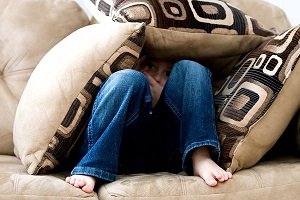Bipolar disorder diagnosis
TweetA bipolar test is a set of serious questions which are used to get information about bipolar disorder. These questions are majorly related to medical symptoms of bipolar. The possible answers go towards whether or not you display the intended bipolar behaviour and if so how often do you show this behavior. Generally speaking if you take the bipolar test getting a higher score means that you are more likely inclined towards suffering from bipolar disorder or manic depression. The bipolar test coordinating the responses, offers a better understanding and help in self evaluating one's mental health condition. This test are just the indicators and cannot be replaced for a expert advice.
Blood test could reveal bipolar disorder
According to a latest study and research, a blood test could be used to diagnose and assess the severity of certain mental illnesses, such as bipolar disorder.
Bipolar Spectrum Screening Quiz: The Goldberg Bipolar Screening Screening Test for Bipolar Spectrum Disorders
Test to see if you have Bipolar Disorder
Activity levels are used
An important test to see if one is suffering from bipolar disorder can work to see if proper treatments are needed. A bipolar disorder test will involve things like taking a look at one’s activity levels. This relates to whether or not a person is more active at certain times than others in both a physical and mental state. It is also important to see if a person can get into activities that can cause a person to become more likely to be irritable than others.
Self esteem is also measured
A bipolar disorder test can also be used to determine if a person is feeling confident about the self by looking at one’s self esteem. This involves more than just how one feels and how bipolar disorder is handled. It also involves how one acts towards other people. A big part of bipolar disorder is that a person can go from being overly confident to being incredibly depressed in a short period of time.
Reasoning is used
An important part of a bipolar disorder test can involve looking to see if reasoning is used in one’s thought. A good person is one who has a good sense of reasoning with regards to getting different ideas and concepts created and taken care of on a regular basis.
Mental thoughts should be used as well
The last part of this kind of test involves how a person thinks. There can be periods where a person can be incredibly creative and then times where a person is dull and cannot come up with anything creative. These are times when a person’s mindset might work different from others and should be heavily considered because a person who keeps on going from one extreme to another is someone who is more likely to deal with bipolar disorder.
Online BiPolar Test
The online bipolar tests are simply the awareness tools that allow individuals to determine the possibility of warning signs that may indicate bipolar. If the test indicates a possibility the very next step is to go for medical or professional help and follow a represented proper diagnosis. The future of bipolar disorder testing may likely lie in the field of genetics.
Bad news about Bipolar Diagnosis
- If it's bipolar, you've got it for life.
- Bipolar episodes can ruin your career, your reputation, your marriage, your kids and could see you penniless and homeless or a law-breaker.
- Bipolar will cost you in medical, hospital and pharmaceutical fees and in lost earnings.
- You can die from it.
- Even between episodes you could have memory and other cognitive impairment.
- Medications alone will not give you a healthy or good life.
Good news about Bipolar Diagnosis
- Bipolar can be effectively treated with medicines and know-how.
- You can learn to protect the important things in your life.
- You can learn how to find a bipolar-proof job.
- You have a 1 in 7 chance of dying by suicide. You can learn how to protect yourself from severe episodes.
- You could have the potential for great creativity.
- You can create a whole-life wellness plan as well as taking medications.
Some sample bipolar test questions
Here are some of the sample bipolar questions:
- I feel restless all the time.
- I spend lots of money on things I can not afford and don't need.
- I feel very mad.
- Friends tell me that I have been acting differently. They tell me that I am talking louder, starting fights, and getting more angry.
- I have trouble trying to focus on anything for very long.
- I sometimes talk really fast and can't seem to stop talking.
- I have a lot of sexual energy.
- I have a large amount of energy.
- I really don't need much sleep.
- I feel that I'm on top of the world.
- I feel powerful. I can do anything I want, nothing can stop me.
Most people are diagnosed between ages 20 and 35; many times, diagnosis in the adolescent or child is mistaken for attention deficit hyperactivity disorder, "teenage rebellion," or other age-appropriate behaviors. Physical examination and laboratory tests, such as endocrine function studies, rule out medical causes of mood disturbances, including intra-abdomiual neoplasm, hypothyroidism, heart failure, cerebral arteriosclerosis, parkinsonism, psychoactive drug abuse, brain tumor, and uremia.
Moreover, a review of the medications prescribed for other disorders may point to drug induced depression or mania. (For characteristic findings in patients with bipolar disorder, see Diagnosing bipolar disorders.)
Due to the changing nature of its symptoms, bipolar disorder can be difficult to recognize. For example, you may remember periods when you felt depressed, but fail to recall periods when you felt unusually "high" and energetic. To make an accurate diagnosis, a doctor needs to know all of the extended periods of "ups" and "downs" you have experienced in your life.
Unfortunately, diagnosing bipolar disorder is nowhere near this straightforward.
While there are some promising breakthroughs on the horizon, there is currently no definitive medical test for this disorder. Furthermore, there are a number of physical conditions and quite a few psychiatric disorders which present symptoms that can be confused with those of bipolar disorder. And just to complicate things a bit more, a great many psychiatric disorders can occur in tandem.
Therefore, to reach a diagnosis of bipolar disorder, a psychiatrist will usually conduct the following:
- Diagnosing physical symptoms for bipolar disorder
Bipolar Disorder is a difficult condition to diagnose. There are a number of physical conditions that can mimic the presentation of or have similar symptoms to bipolar disorder. Therefore, other health concerns must first be ruled out for an accurate diagnosis. A complete physical exam and medical work-up should be completed for a patient who is struggling with significant variability in mood.
- Diagnosing psychiatric symptoms for bipolar disorder
The list is rather long of psychiatric conditions with symptoms similar to those of bipolar disorder. To further complicate the picture, most of these disorders can also occur concomitantly with bipolar disorder. A complete psychiatric exam and medical work-up should be completed for a patient who is struggling with significant variability in mood.
- Family History
Current research indicates that mood disorders have genetic underpinnings - they tend to run in families. Therefore, if there is a family history of depression or bipolar disorder, it is a good indication that this is the case for the current patient as well.
- Diagnosing Current Symptoms of bipolar disorder
There are a number of symptoms that are common for manic and depressive episodes. The best way to recognize bipolar disorder is to understand its different types and look for specific symptoms of bipolar disorder diagnosis.
If no physical cause is found, if no other psychiatric disorder better accounts for symptoms, if the current symptoms have been of significant duration or cause significant impairment in functioning, a patient may then be diagnosed with bipolar disorder.
Bipolar Disorder - Bipolar Disorder is the form of depressive illness in which the sufferer has periods of being on a high, as well as periods of depression.
Treatment of Bipolar Disorder - Effective treatment is available for bipolar disorder.
What is the cause of Bipolar Disorder? Learn about various causes of bipolar disorder such as family tree, your genes, loss of job, etc.
Rapid Cycling Bipolar Disorder diagnosis the essential feature of rapid cycling bipolar disorder is the occurrence of four or more mood episodes during the previous 12 months.
The less severe form of high in bipolar disorder is hypomania.
What are the symptoms of Bipolar Disorder diagnosis? There are various symptoms of bipolar disorder.
Can Adolescent have bipolar disorder? Bipolar disorder can occur in adolescents and has been investigated by federally funded teams in children as young as age 6.
Can Children Have Bipolar diagnosis Disorder symptoms? Children experience faster mood swings than adults, often cycling many times within a day.
Bipolar disorder - a case study Millions of Americans diagnosed with mental illness lead healthy lives because of information discovered through clinical studies.
History of bipolar disorder - Bipolar disorder has left its mark on history.
Importance of Bipolar disorder diagnosis Diagnosis is important, because it guides treatment decisions.
What is the need of diagnosis in childhood? The importance of proper diagnosis cannot be overstated.
What are the types of bipolar affective disorder? Learn about various types of bipolar disorder.
How can u help ur child and what is the role of parents? Your child can reduce the minor mood swings and stresses that sometimes lead to more severe episodes by adhering to the following tips.


Sometimes crying or laughing
are the only options left,
and laughing feels better right now.

Current Issue
 Self Help Leaflets Take the help of our self help leaflets or booklets. |
 The DG Magazine All about living with depression |


















